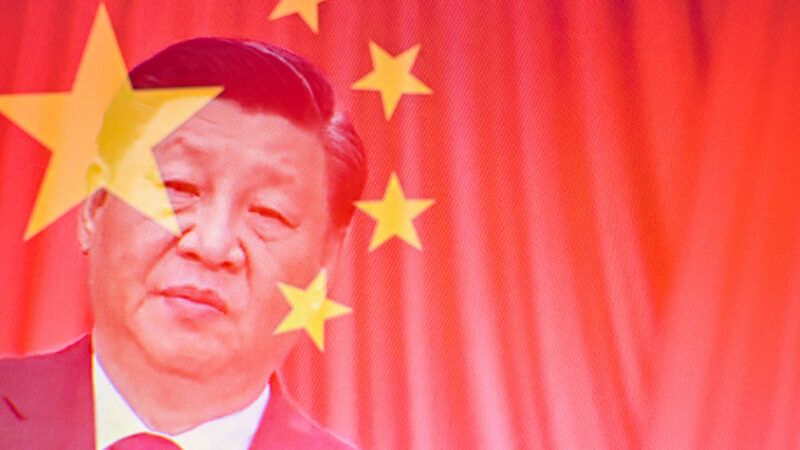China's Industrial Policy Is Failing. Will American Politicians Take Notice?
Panic over China's rapid economic growth has fueled all manner of big-government proposals. They're looking even more foolish now.

Amid a summer surge in youth unemployment, China's government made headlines last week by announcing that it would simply no longer publish official data on how many young workers can't find jobs.
But not all of the country's economic woes can be so easily hidden.
China's economic model—which has leaned strongly into industrial policy and top-down investments directed from Beijing—"is broken" and has left the country "drowning in debt and running out of things to build," Lingling Wei and Stella Yifan Xie explain in a must-read feature published in Sunday's Wall Street Journal. The red flags include well-known factors such as China's demographic issues (a direct consequence of another government-led attempt at engineering society: the one-child policy) and less obvious failings caused by malinvestments. One example of the latter is "a high-speed rail station in Danzhou, a city in China's southern province of Hainan, [which] cost $5.5 million to build but was never put into use because passenger demand was so low." Another: "Guizhou, one of the poorest provinces in the country with GDP per capita of less than $7,200 last year," has 11 airports, more than China's four biggest cities.
As in the U.S., bridges to nowhere and useless high-speed rail projects are a sign of infrastructure policies driven by politics rather than economics. In China, the national and local governments have borrowed heavily to fund construction projects to goose economic growth. It's an approach that some in Beijing now privately admit "has reached its limits," the Journal reports.
With the old model reaching its end, it would make sense for China to pursue another phase of liberalization, evolving toward a freer economy with a focus on consumer spending and service industries. But that clashes with President Xi Jinping's vision. Instead, the government is scaling up another round of industrial policy focused on semiconductors, artificial intelligence, and direct government spending on cultural items such as sporting events.
"The leadership also worries that empowering individuals to make more decisions over how they spend their money could undermine state authority, without generating the kind of growth Beijing desires," the Journal reports.
That line does a pretty great job of summing up what's at stake in China. There's no doubt that governmental stimulus spending can drive economic growth higher over the short term, but the bill eventually comes due in the form of higher debt and wasted resources. Sustainable, long-term economic growth doesn't come from officials issuing edicts. It comes from the individuals' power to pursue their own needs and desires in the marketplace—even if some of those desires aren't aligned with what the government wants.
This is a difficult lesson for politicians everywhere to accept. Whether China's leaders can learn it quickly might determine the future course of the world's second biggest economy.
There's a lesson for America in China's economic wobbles. Panic over China's rapid economic growth has fueled all manner of big-government proposals in recent years. That includes calls for amping up industrial policy and infrastructure spending, most obviously, but that's not all. The specter of China shows up in debates over whether the federal government should regulate online speech, should subsidize American drug manufacturing, should control how Americans invest.
This is a bipartisan phenomenon. Former President Donald Trump was obsessed with using tariffs to curb China's growth, an approach that did far more to impose economic costs on Americans. President Joe Biden keeps on talking about China "eating our lunch" when pitching plans to expand government spending. It's a line that Florida Gov. Ron DeSantis has recently parrotted too.
More attention should be paid to the weaknesses in China's economic model, which are becoming more difficult to ignore on both sides of the Pacific. China's leaders have bet heavily on the misguided notion that government-directed investment is the key to greater economic growth. American officials should be in no rush to follow Xi down a path that requires curtailing liberty to chase a little temporary stimulus.


Show Comments (80)